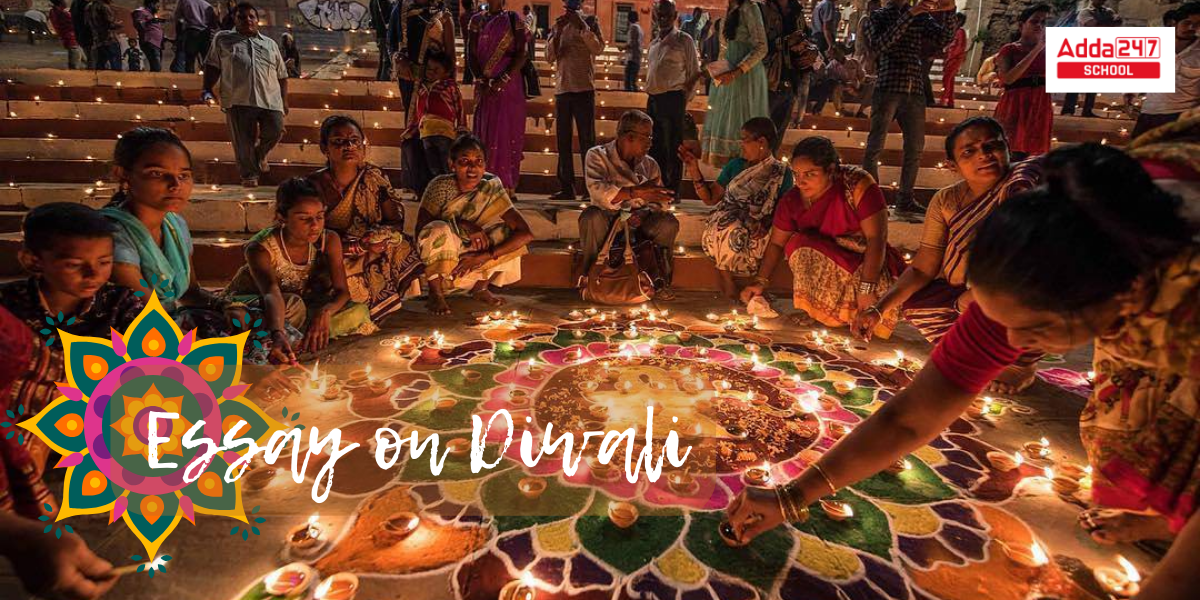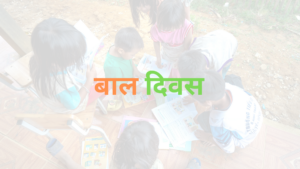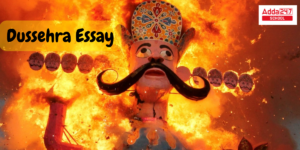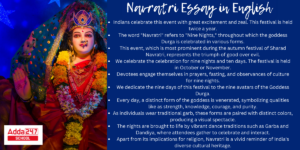Essay on Diwali 2025: Diwali is one of India’s most recognised festivals, celebrated for its joy and splendour. In this post, we made an insignificant effort to write an intriguing and informative essay about the prosperous Diwali festival. We hope that these Diwali festival English essays are useful to young learners who need to write a Diwali Essay in English. We have shared the Essay on Diwali in all forms, such as 100, 120, and 400 words on this page.
Essay on Diwali
Diwali is one of the most exciting and beautiful festivals in India. It is also known as Deepavali, which means “a row of lights.” Diwali is a festival that brings happiness and lights into our lives.
Diwali has a special story behind it. It celebrates the return of Lord Rama to his kingdom after defeating the demon king Ravana. People were so happy that they lit up the whole city with diyas (small lamps) to welcome him.
Diwali is a time of joy and fun. Families clean and decorate their homes with lights and rangolis. Rangolis are colorful patterns made on the floor using colored powders or flowers.
At night, the sky sparkles with fireworks. Everyone wears new clothes and prays to Goddess Lakshmi for good luck and prosperity. We also exchange gifts and sweets with friends and family. It is a time when everyone comes together and enjoys.
Diwali is not just about lights and crackers. It teaches us about the victory of good over evil and light over darkness. It reminds us to be kind and do good things.
Diwali is my favorite festival because it is full of colors, lights, and happiness. I love seeing everyone smiling and having a great time.
Diwali is a beautiful festival that brings people together. It fills our hearts with joy and our homes with light. Let’s celebrate Diwali in a safe and happy way!
Diwali Essay 2025
Children can take some ideas from this Diwali essay sample and write a few lines while learning how to structure sentences and improving their English writing abilities. Aside from that, when requested to write an essay on Diwali, children have a great time since they get to share their joyful memories of the holiday. Diwali is a joyous occasion that is commemorated with loved ones and is defined by fun, food, and new beginnings. Sharing greetings and gifts with their loved ones, they get to meet their family, friends, and relatives.
Essay on Diwali in English 10 Lines
A 10-line Essay on Diwali in English is written here. It is the simplest and easiest that you can use while writing a Diwali Essay.
- Diwali is one of the largest and most celebrated Hindu holidays, enjoyed with great zeal and happiness.
- Diwali, also known as the Festival of Lights, represents the prevailing of light over darkness.
- This celebration is popular among children since it provides a lot of joy and excitement for everyone.
- Lighting oil lamps, known as ‘Diyas,’ is a traditional way of honouring Lakshmi, the goddess of riches. Apart from this people also decorate their houses with lamps.
- Rangoli is used to decorate dwellings during Diwali. Families get ready for Diwali by cleaning and adorning their homes with lights and colourful rangolis. Coloured rice, sand, and flower petals are used to create colourful designs on the ground.
- People do ‘Lakshmi Puja,’ or prayers, to seek blessings for prosperity and success.
- Symbolizing a new beginning and the joyful spirit of the holiday, wearing new clothes is an integral component of the celebration.
- Fireworks are set off to celebrate the joy of Diwali.
- People pay visits to family members, neighbours, and friends. They give each other gifts and spend time together.
- Many individuals throw Diwali parties to celebrate the season with their friends and family. This way, the delight of celebrating is multiplied.
Essay on Diwali in English 120 Words
Diwali, also known as the Festival of Lights, is one of the most popular and significant festivals in India. Celebrated with great enthusiasm, it marks the victory of light over darkness and good over evil. People clean and decorate their homes with rangoli and light diyas and candles. Firecrackers are burst, and sweets are exchanged among friends and family. Diwali also honors the return of Lord Rama to Ayodhya after 14 years of exile, symbolising hope and joy. It is a time for new beginnings, prayers to Goddess Lakshmi for prosperity, and the spirit of togetherness. Diwali is a beautiful blend of joy, devotion, and celebration that brings people closer.
Diwali Essay in English 150 Words
Diwali occurs between the middle of October and the middle of November. Diwali comes on the new moon (Amavasya) of Kartik month, according to the Hindu calendar. In the Hindu religion, this is regarded as one of the most fortunate periods.
Diwali is a Hindu celebration commemorating Lord Ramchandra. It’s because Lord Rama returned to the place of Ayodhya following being absent for 14 years. When Rama returned, the people of Ayodhya lit oil lamps to express their joy at seeing him and to celebrate his victory.
Before Diwali, each and every corner of homes, shops, and offices is thoroughly cleaned. These are then embellished with lights, lamps, flowers, and other ornaments. On Diwali, people decorate their homes with diyas, candles, and lights. They also make rangoli and utilize flowers to beautify their homes. People wait for this time of year to begin a new business, move to a new residence, or buy a large asset such as a car, shop, jewelry, and so on.
Diwali, additionally referred to as the festival of lights, is all about worshipping the deities, lighting crackers, eating sweets, and celebrating with loved ones. People pay visits to family members, neighbours, and friends. They give each other gifts and spend time together. Many individuals throw Diwali parties to mark the season with their friends and family.
Write an Essay on Diwali in 200 Words (Diwali Essay 200 Words)
Diwali, also known as the Festival of Lights, is one of the most important festivals in India. Celebrated by Hindus, Sikhs, and Jains, Diwali symbolises the victory of light over darkness and good over evil. People decorate their homes with beautiful lights, candles, and diyas (oil lamps) to celebrate this special occasion. They also clean their houses and often buy new clothes to welcome good fortune.
Families gather to enjoy sweets, exchange gifts, and share delicious meals. Firecrackers are often lit, filling the night sky with bright, colourful lights. However, in recent years, people are encouraged to use fewer crackers to protect the environment.
Diwali has a special meaning in Hindu mythology. It celebrates the return of Lord Rama, Sita, and Lakshmana to their kingdom, Ayodhya, after 14 years in exile. People in Ayodhya lit lamps to welcome them back, which is why we still light lamps on Diwali today.
Diwali also reminds us to be kind and generous, sharing our joy with others. It is a time to let go of past arguments, forgive, and spread happiness. Diwali is a joyful festival, and people of all ages enjoy the lights, colors, and togetherness it brings.
Essay on Diwali 250 Words
One of the most important Hindu holidays, Diwali, is celebrated across all states of India. The holiday is widely observed throughout India. It is observed every year to commemorate Lord Rama’s homecoming to his kingdom of Ayodhya.
To commemorate this holiday, a number of ceremonies are conducted. Weeks before the holiday, preparations for the Diwali celebration begin. People begin their preparations by dusting their homes and businesses. At this festival, people buy new clothes, home furnishings, and gifts for their loved ones. Around this season, the marketplaces are swamped with a variety of gift items and sweets. It is an excellent time for businessmen. It is also a nice time to spend with our loved ones.
As part of the celebration, people pay visits to one another and exchange presents. One of the important ceremonies of this Hindu celebration is the lighting of diyas. Every year, people buy beautiful ceramic diyas and use them to brighten their entire house as part of the Diwali celebration. On the occasion of Diwali, every Hindu household performs the practice of worshipping Lakshmi, the Hindu goddess of wealth, and Ganesha. This is thought to bring riches and good fortune.
One of the key rituals of the Diwali festival is the exchange of gifts. People pay visits to coworkers, neighbors, family members, and friends and give them presents to enhance their bonds. In the Hindu calendar, it is regarded as one of the most fortunate days.
Diwali Essay in English 400 Words
Sample 3 -Diwali Essay in English 400 Words is given below.
Introduction: What is Deepavali?
Deepavali, or Diwali, represents one of India’s most important celebrations. It’s the Festival of Lights, and everyone is filled with joy and excitement. Diwali promotes philanthropic acts and reminds people to share their wealth with those in need. Thousands of glittering candles and colorful lights flood the sky and residences on Diwali nights.
When will be it celebrated this year?
Diwali is traditionally celebrated between October and November. Diwali will be held from Sunday, November 12th to Tuesday, November 14th, 2023 this year.
Why is Diwali celebrated?
Diwali commemorates the 14-year exile of Lord Rama, the bride Sita, and his devoted brother Lakshmana. According to legend, people lighted oil lamps, or diyas, so they could direct them safely. Lord Rama is a prince who is a symbol of honesty and righteousness as well as a superb archer. Lord Rama, his devoted wife Sita, and his devoted brother Lakshmana were exiled for 14 years.
But, at the time, Sita had been captured by Ravana, the demon king, who drew her out from Lakshmana’s guarded circle. A fierce battle followed, and Lord Rama fought Ravana and rescued Sita with the assistance of an army of monkeys and an epic bridge.
Lord Rama, Sita, and Lakshmana arrived in their kingdom that is Ayodhya, after an extensive and difficult exile. The population of Ayodhya was pleased at the news of their arrival and wished to celebrate their glorious return. To commemorate their beloved prince’s return and to illuminate his route, the people of Ayodhya lighted oil lights, or diyas, throughout the kingdom. These lamps not only lit up the area, but they also represented the triumph of light over darkness. This is when the Diwali notion comes into play.
How is Diwali celebrated?
The main goal of Diwali is to promote joy and light. Oil lamps, candles, and colorful lights are used to decorate homes. It’s similar to a huge, glittery Christmas tree, but with a lot more colors. It’s entertaining to watch crackers illuminate the sky during Diwali. During this event, families and friends enhance their relationships by sharing festive feasts and sharing gifts, and sweets. Wearing new clothes is part of the celebration, representing a new beginning and the festival’s upbeat spirit. During Diwali, families assemble to perform special prayers and rites. It’s a time for introspection and thanksgiving.
Conclusion & Happy Diwali!
Diwali is an occasion to gather with family, friends, and even outsiders to celebrate. It’s a swirl of colors, lights, sweets, and joy. Finally, Diwali is more than only cleaning and adorning homes; it is also a time to clean up your life by accepting and erasing past sins.
Essay on Diwali 500 Words in English
The essay on Diwali is part of their course syllabus for class 1 to 6. here we give simple and easy essay for the students
Diwali Essay Introduction
Diwali, also known as Deepavali, is one of the most awaited and vibrant festivals in India, celebrated with great fervor and joy. It is a festival of lights that symbolizes the victory of light over darkness, good over evil, and knowledge over ignorance. This auspicious occasion brings together people from various walks of life to celebrate unity, peace, and prosperity.
Diwali Historical Significance
Diwali has several historical and mythological connotations. One of the most popular beliefs is that it marks the return of Lord Rama, along with his wife Sita and brother Lakshmana, to Ayodhya after 14 years of exile and a victorious battle against the demon king Ravana. To welcome them, the people of Ayodhya lit their homes and streets with diyas (earthen lamps). This tradition continues as a symbol of the triumph of good over evil.
Diwali Cultural Importance
Diwali is a pan-Indian festival, celebrated by Hindus, Jains, Sikhs, and some Buddhists, each with their unique customs and traditions. For many, it is a time for worshiping deities, with Goddess Lakshmi and Lord Ganesha being the most revered during Diwali. The festival signifies the start of a new business year, so traders and businessmen inaugurate their accounts on this day.
Diwali Festivities and Celebrations
The celebration of Diwali extends over five days, with each day having its significance, rituals, and modes of celebration. Homes and commercial spaces are cleaned and decorated with lights, diyas, and colorful rangolis. Families gather to perform religious rituals, exchange gifts, and share sweets and festive meals. Fireworks and crackers are a prominent feature, lighting up the night sky in a multitude of colors.
Diwali Environmental and Social Impact
In recent years, there has been a growing awareness of the environmental impact of Diwali, particularly concerning the use of firecrackers. Efforts are being made to celebrate an eco-friendly Diwali by reducing noise and air pollution. Socially, Diwali serves as a time to strengthen family bonds and community ties, emphasizing sharing and caring, especially for the less fortunate.
Diwali Essay Conclusion
Diwali, with its universal themes of victory, unity, and illumination, transcends religious boundaries, bringing people together in a celebration of life’s inherent goodness and hope. As the days light up the night, hearts are filled with joy, homes with warmth, and the world seems a little brighter. Diwali thus remains not just a festival of India but a global celebration of harmony and happiness.
Tips For Making Your Diwali Essay Stand Out
- Use a Strong Introduction: Begin with an interesting sentence or a short anecdote that grabs the reader’s attention.
- Provide a Personal Touch: Use personal anecdotes or insights into how Diwali is celebrated in your home or community.
- Include Relevant Quotes: Include a pertinent quote from a noted figure or a familiar saying regarding Diwali or light.
- Pay attention to Clarity: Write using clear and simple language, and organise your essay in well-structured paragraphs. Each paragraph should smoothly flow into the next.
- Visual Description: When describing, apply vivid descriptions that make the reader “see” the lamps, colours, and festivities.









 बाल दिवस पर निब�...
बाल दिवस पर निब�...
 Essay on Dussehra in English in 10 Lines...
Essay on Dussehra in English in 10 Lines...
 Navratri Essay in English- Check 10 Poin...
Navratri Essay in English- Check 10 Poin...














